Driving 3000 miles, sleeping in a tent, and showering in a gym isn’t the typical research conference experience. Yet, in 2022, this is how Abby Lee was able to attend the Small Satellite Conference while between jobs.
Rather than put her off, this experience inspired her.
The next time she attended, Abby had her flights and hotel covered by her employer, as she presented research conducted while working on internship. At the conference's 32nd Annual Frank J. Redd Student Competition, she won the first-place $10,000 USD grand prize as well as a trip to an international space conference in Spain. Furthermore, the recognition she garnered by presenting at this prestigious competition has led to several invitations from professors at top aerospace universities like MIT to visit their research space as a prospective graduate student.
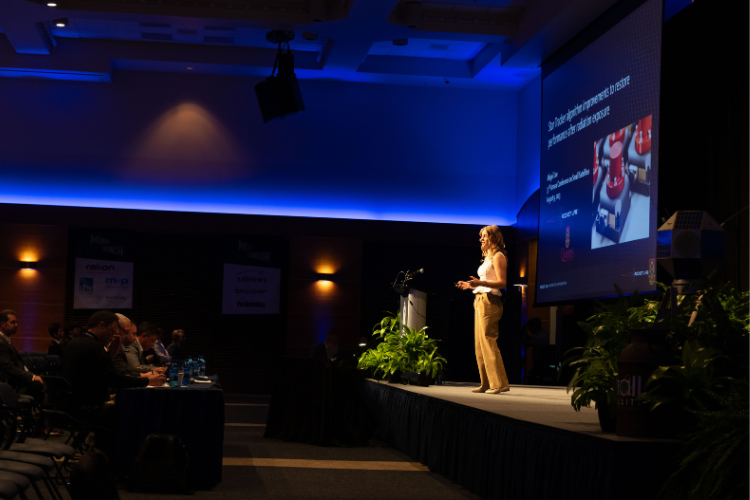
A fifth-year mechanical engineering student, Abby Lee recently completed a 12-month internship through the Queen’s Undergraduate Internship Program (QUIP) at Sinclair Interplanetary by Rocket Lab, fueling her passion for space, research, and systems engineering. She also serves as the Queen’s Engineering Rocket Team (QRET) President, a role that allows her to give back and help fellow students navigate their engineering journeys.
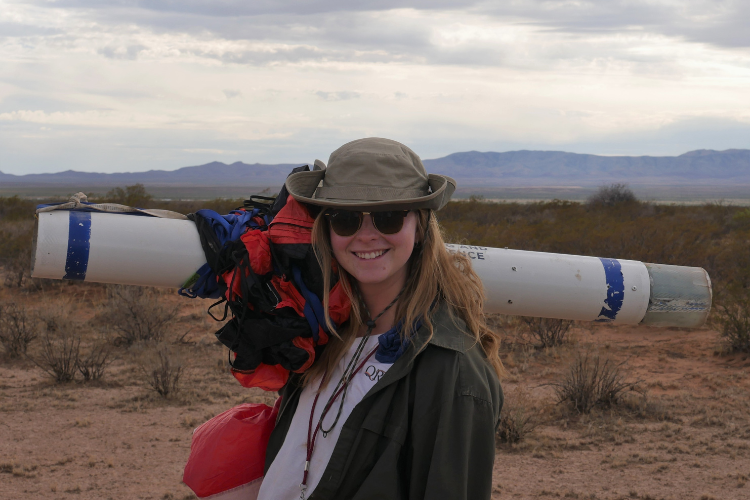
Making opportunities and knowledge accessible for all are some of her key goals. She understands this importance firsthand, as it was through networking that she learned of the many opportunities available to students. During Lee’s first time attending the Small Satellite Conference, she realized one of the students presenting in the competition was in third-year on their internship working at Sinclair Interplanetary by Rocket Lab, where she about to start in a few weeks.
Lee described her surprise at realizing that research and competition were not limited to graduate students: “I didn't realize this is something an undergrad could do. I didn't realize it was someone who's in industry can do! So, I talked to her afterwards, and she explained that students still have full time student status while on internship. Plus, you're doing research on a job. So, you can write a paper and submit it with your employer as your supervisor.”
She learned that students, both undergraduate and graduate, could write and submit research papers for the competition, and if selected among the top 6, they would get an invitation to present at the conference.
This year, Lee submitted the research she was conducting through her QUIP internship placement to the conference application. Lee’s paper made it into the top 6, securing her a funded trip to the Small Sat conference, sponsored by her internship company. She was one of the only undergraduates and one of the few solo researchers. Despite the odds, she achieved first place in the competition, earning a monetary prize of $10,000 USD and an opportunity to attend a conference in Mallorca, an island off the coast of Spain, in May 2024.
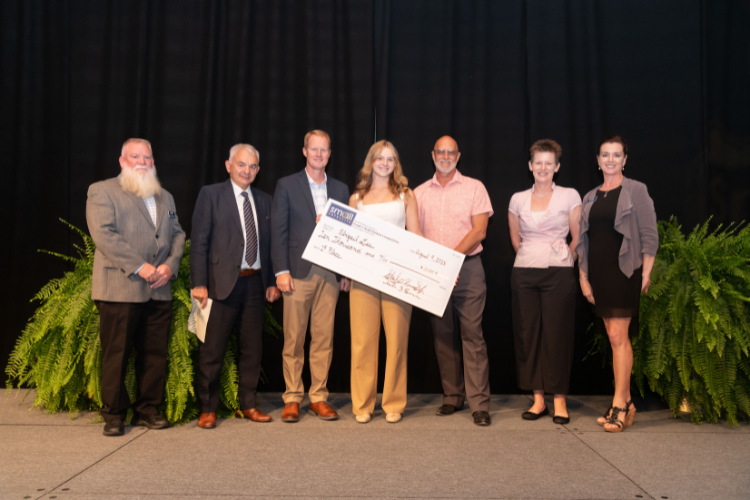
Winning the competition at the Small Satellite Conference had a profound impact on Abby both personally and professionally. Participating in the competition garnered significant attention from conference attendees. Abby's presentation led to professors from top 5 aerospace universities, such as the University of Michigan and MIT, offering her opportunities to visit their institutions. These unexpected invitations presented a valuable chance for further education and networking.
Lee elaborated, “I had never considered doing a Master's before this. It’s a door that never would have been opened for me, if not for this competition.”
Additionally, the competition and her internship validated her skills and abilities as an engineer: “When you're in school, you're doing these labs, and you get a mark which tells you how well you completed the lab. But I felt like there was more to learn and more confidence that I needed. So being on my internship doing research and actually being told that I am a competitive researcher, that I am a competitive engineer, it gave me more confidence in my skills.”
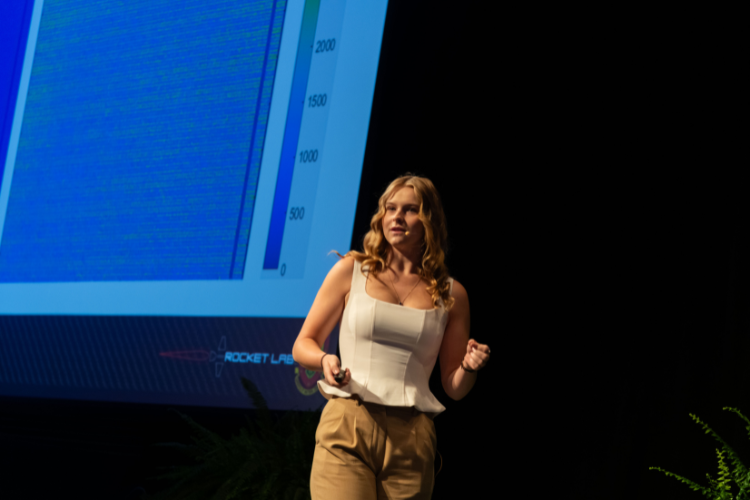
While on internship at Sinclair Interplanetary by Rocket Lab, Lee’s responsibilities included improving the algorithm of star trackers to enhance their resilience to radiation. Star trackers, akin to advanced cameras, captured images of constellations or stars in the sky. These images were used to determine the satellite's orientation and position in orbit, similar to how sailors once navigated using the stars.
The research that earned her $10,000 and a trip to Spain, focused on methods to enhance the star tracker's performance in radiation-rich environments. Typically, radiation could overwhelm the algorithm, rendering the star tracker unusable. Her efforts were dedicated to making the algorithm more robust, potentially extending the lifetime of the star tracker and enabling its use in environments with higher radiation levels, such as beyond Earth orbits.
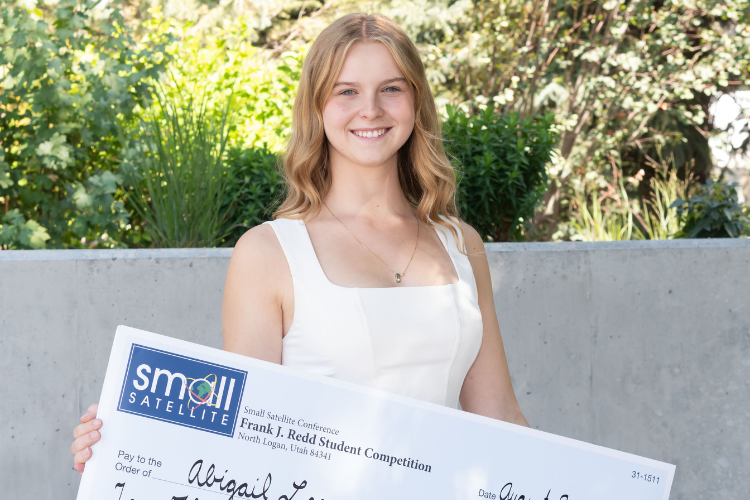
Abby reflects on her internship experience and offers valuable advice for those embarking on similar journeys. She acknowledges that internships can be intimidating, even for her. Abby emphasizes the importance of involving the support and resources available at Queen's University throughout the internship process. When her initial internship in a startup company proved to be unsuitable, she reached out to Queen's, and with their assistance, she successfully switched to a more suitable internship.
Her key takeaway is that if you find yourself in an internship that doesn't align with your interests or expectations, it's okay to switch. It's a valuable learning opportunity that can inform your future career decisions: “Sometimes you just feel like you're all alone on an island hating your job. But know that there are other things out there. Learning is okay. Recognizing when a job isn't a good fit for me and knowing I can leave. And that's something that I can now draw on after I graduate. It’s something that has helped me learn what I want to do, and trust some of the decisions that I make.”
Lee’s internship and success in the competition have led to immediate benefits like the monetary prize and a trip to Spain – not to mention the invitations to tour top universities as a future graduate student. In addition, these experiences also have been a catalyst for her understanding her own career pathways and opportunities in the future. Lee envisions a career working as a systems engineer whose expertise will lie in the integration of diverse parts and structures to produce a whole, complex, and functioning machine — like a satellite.